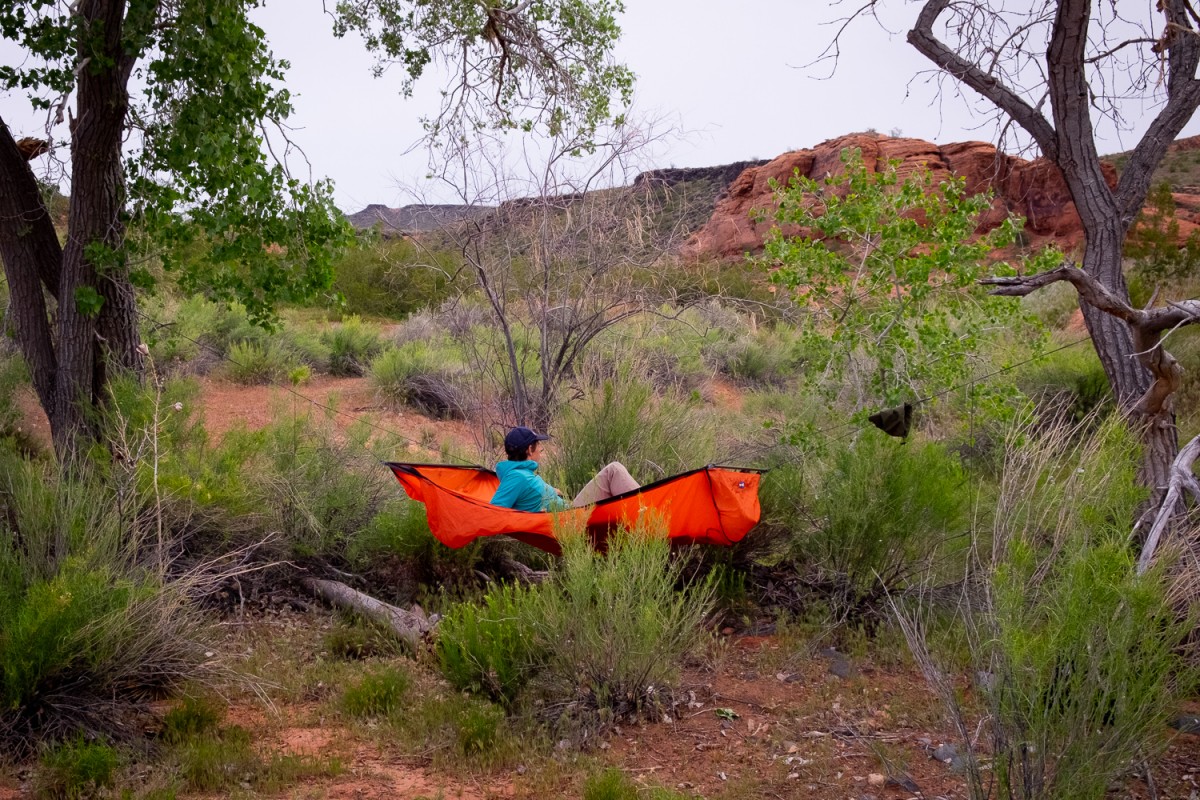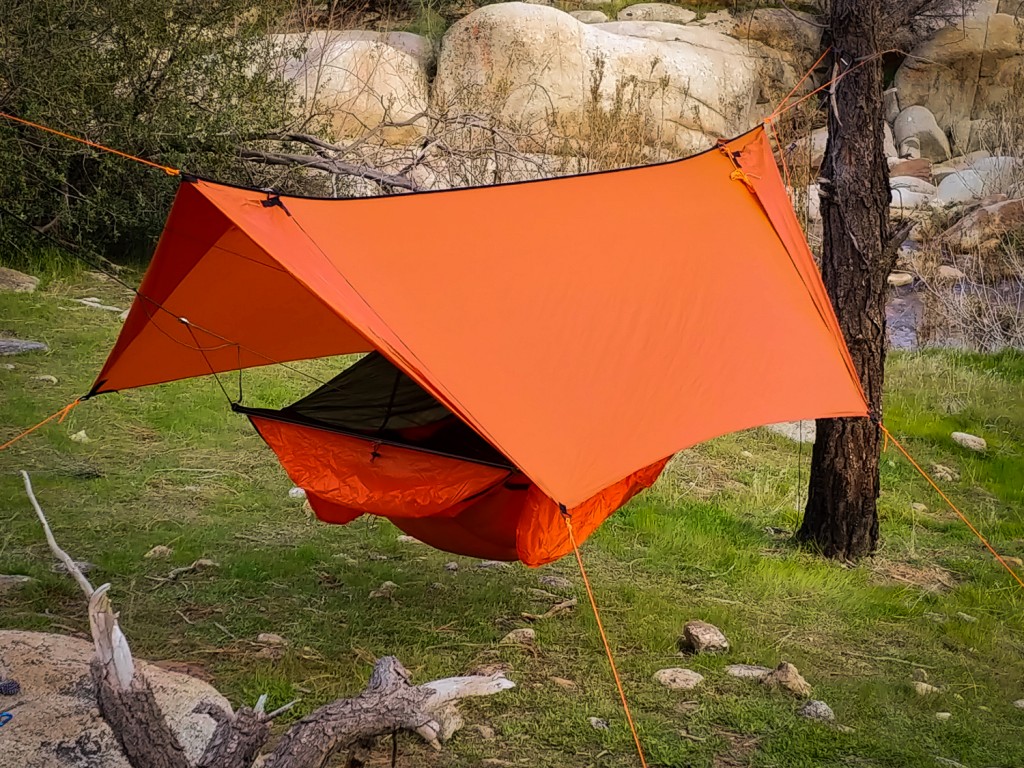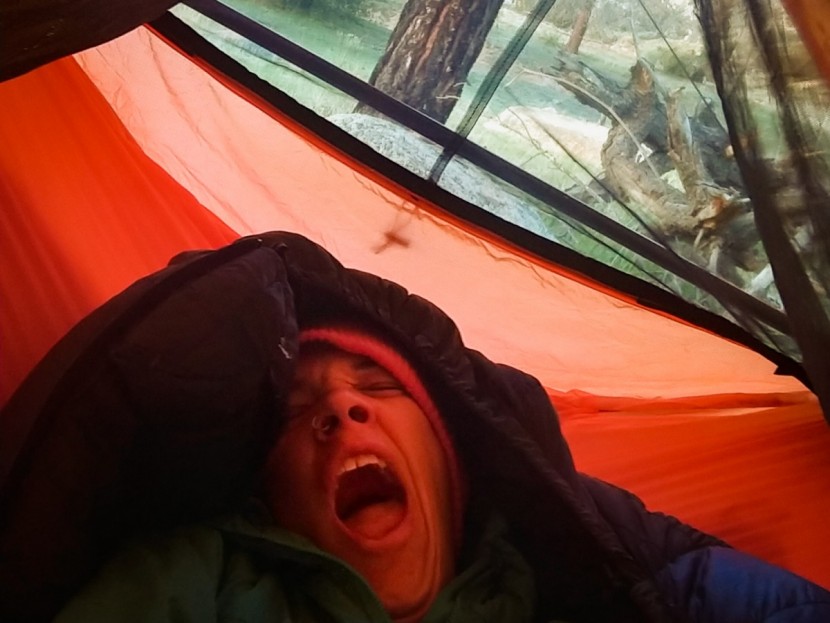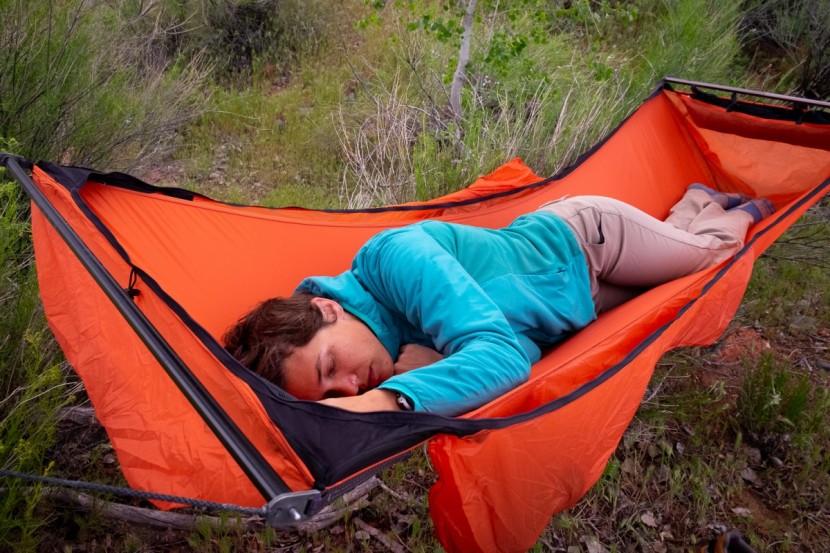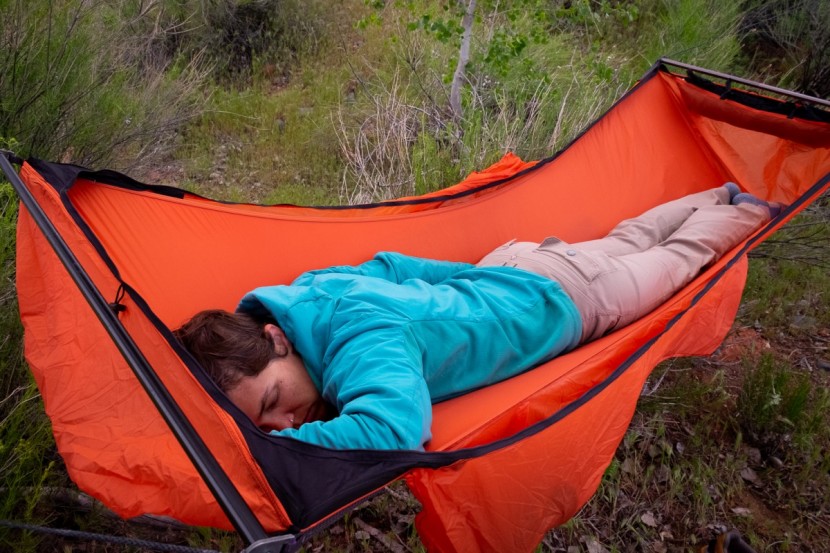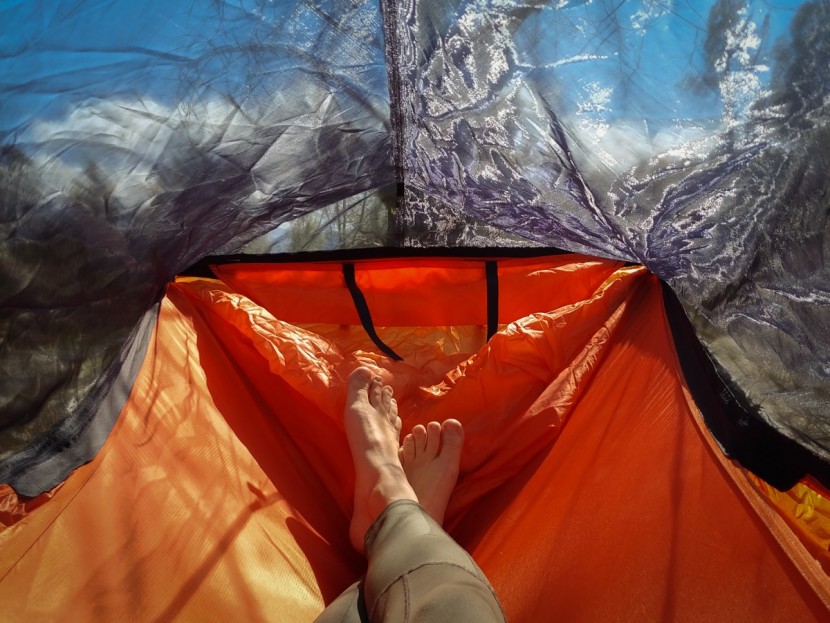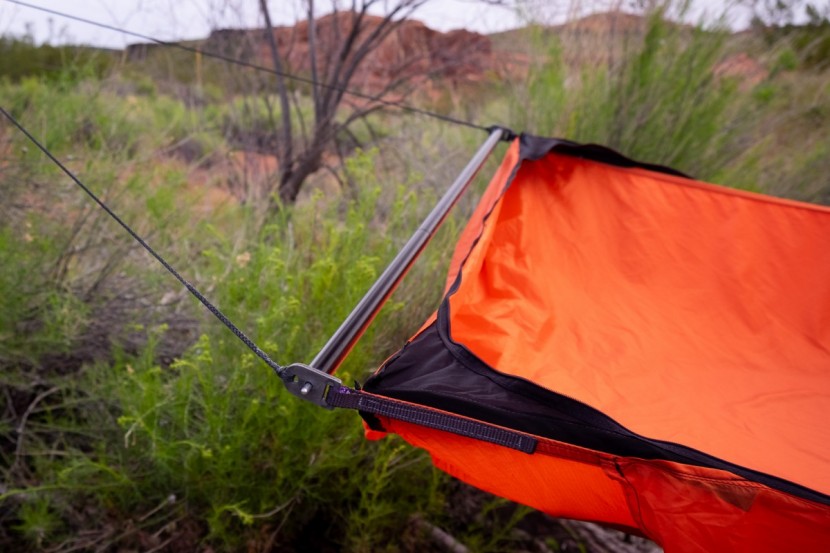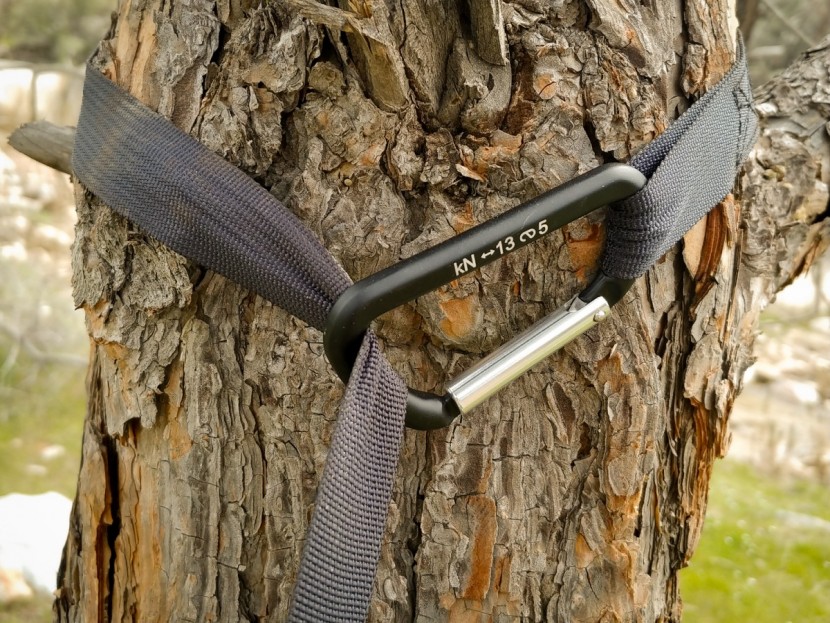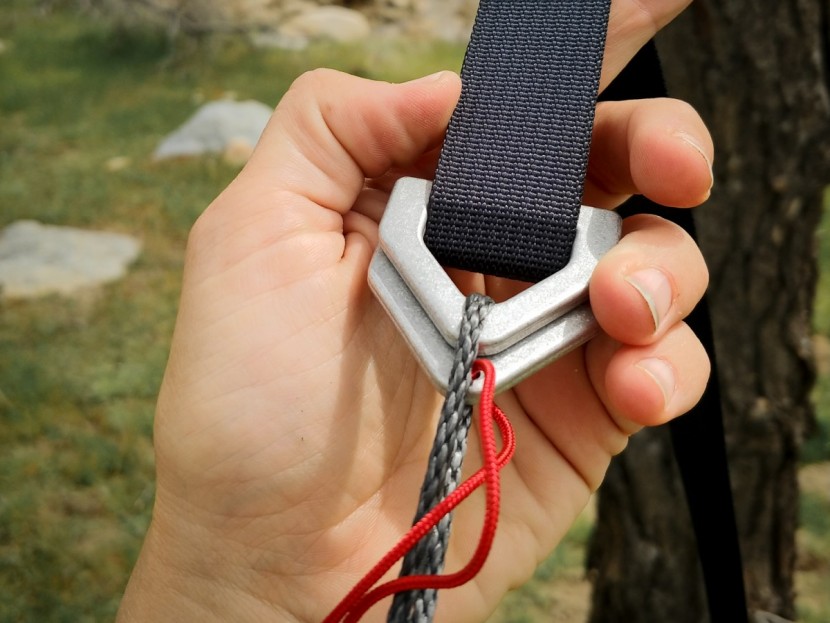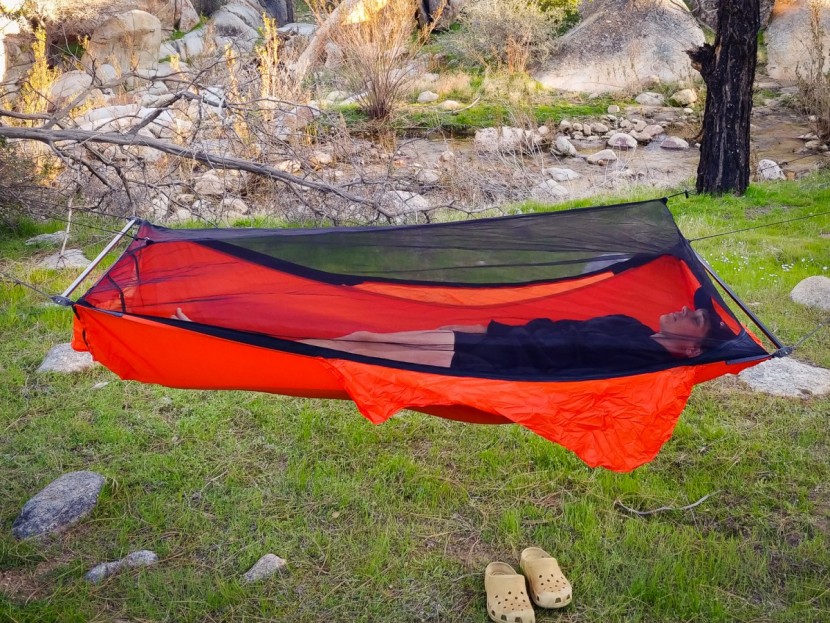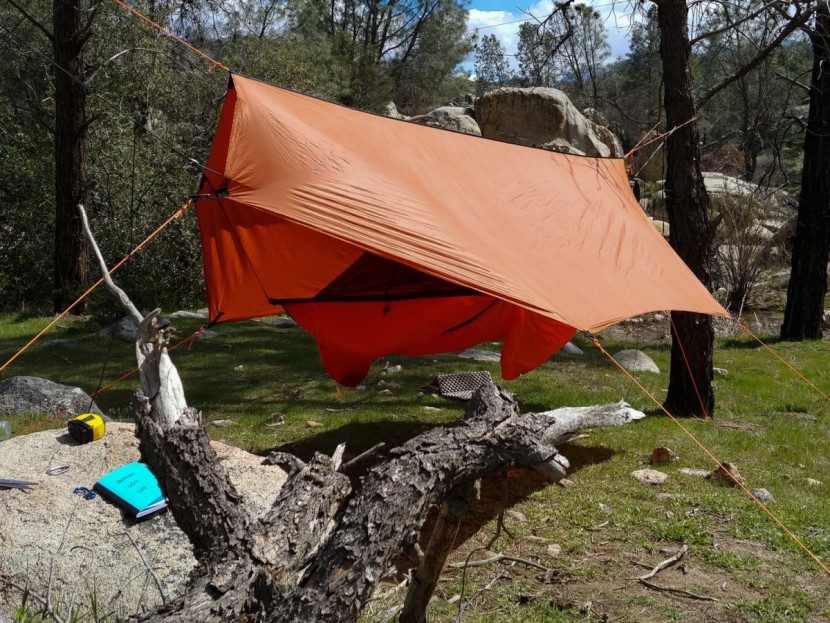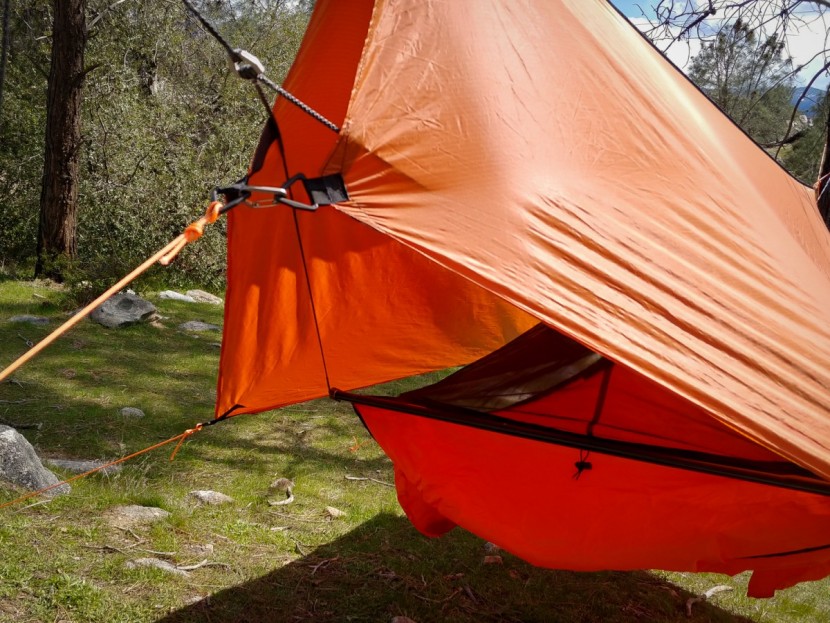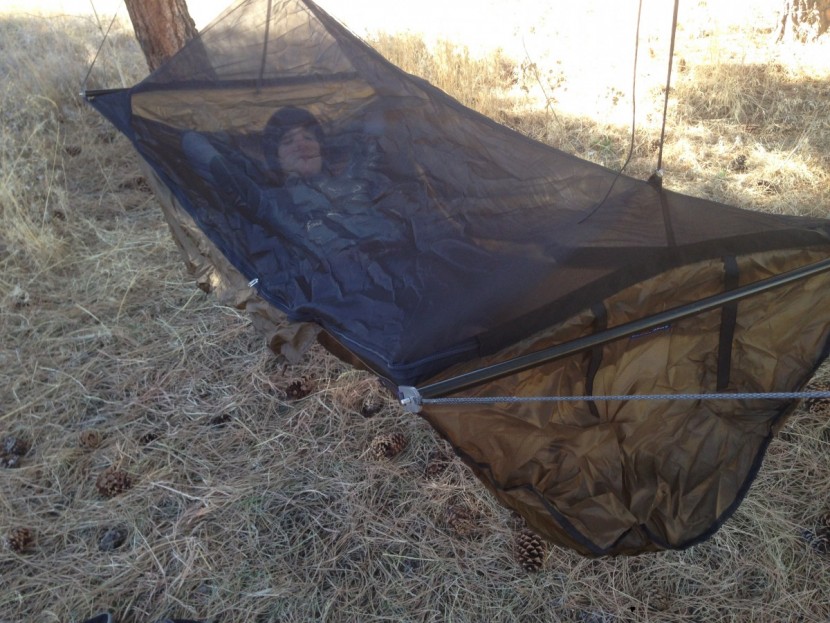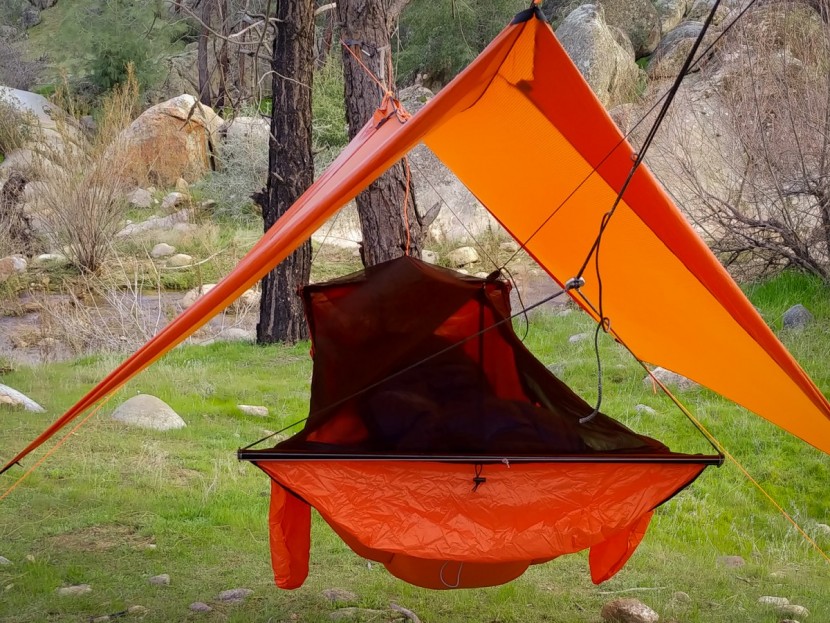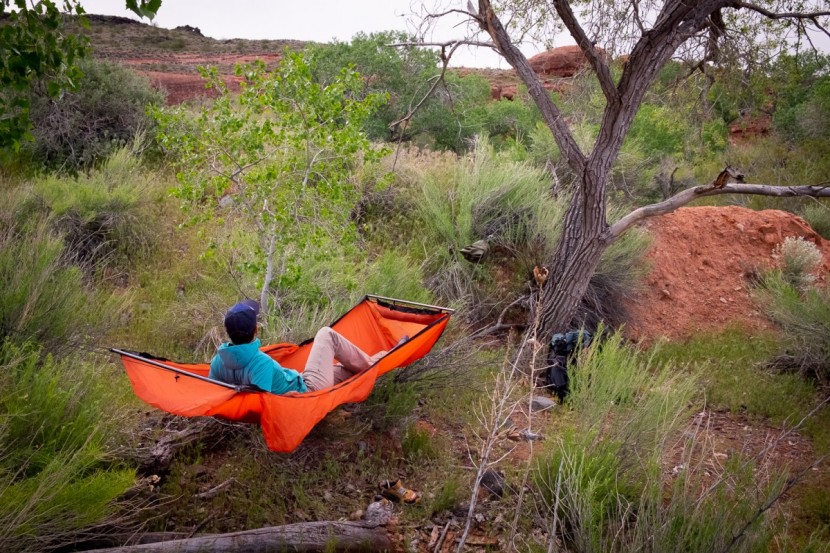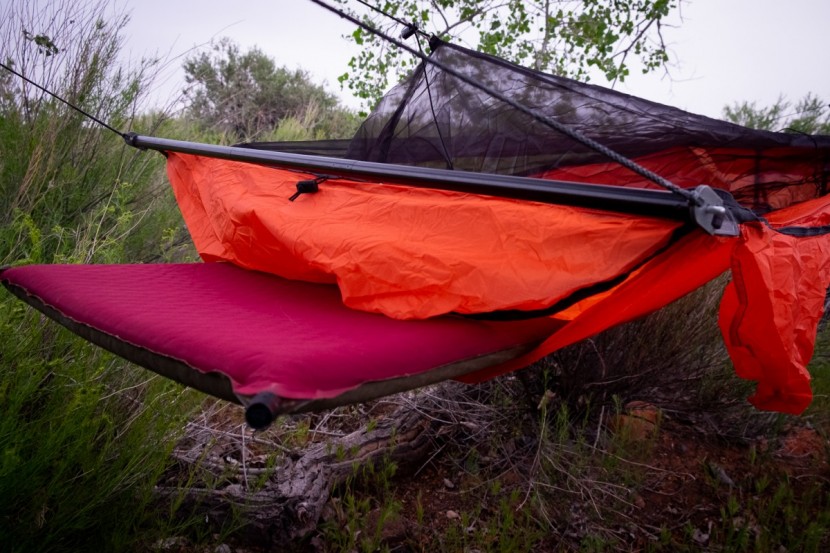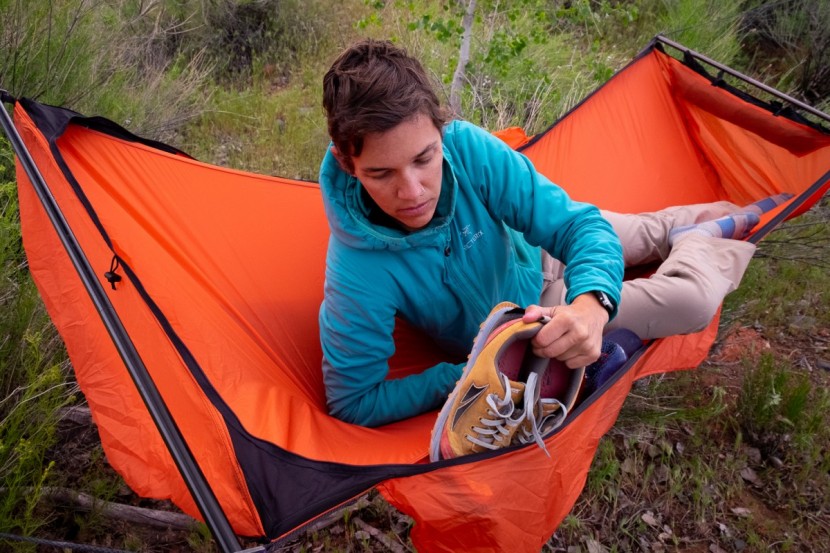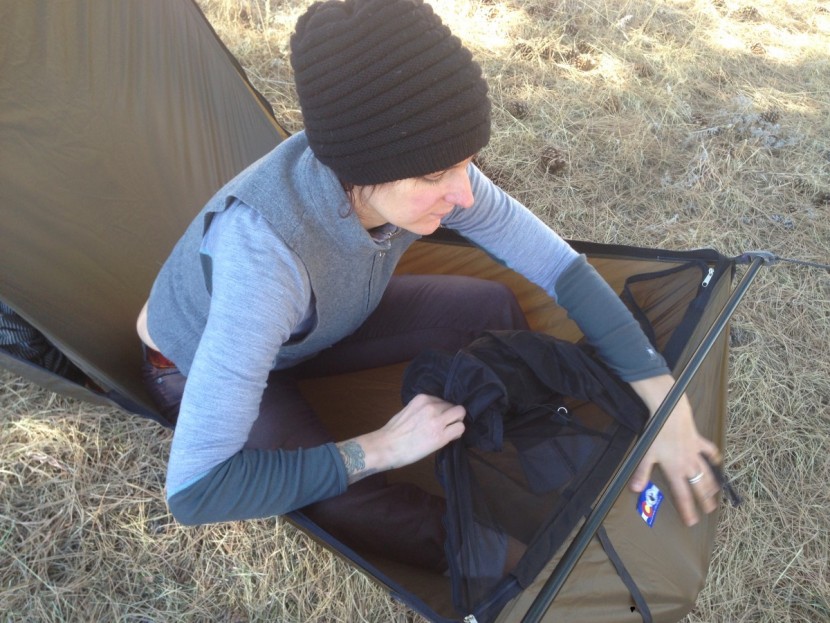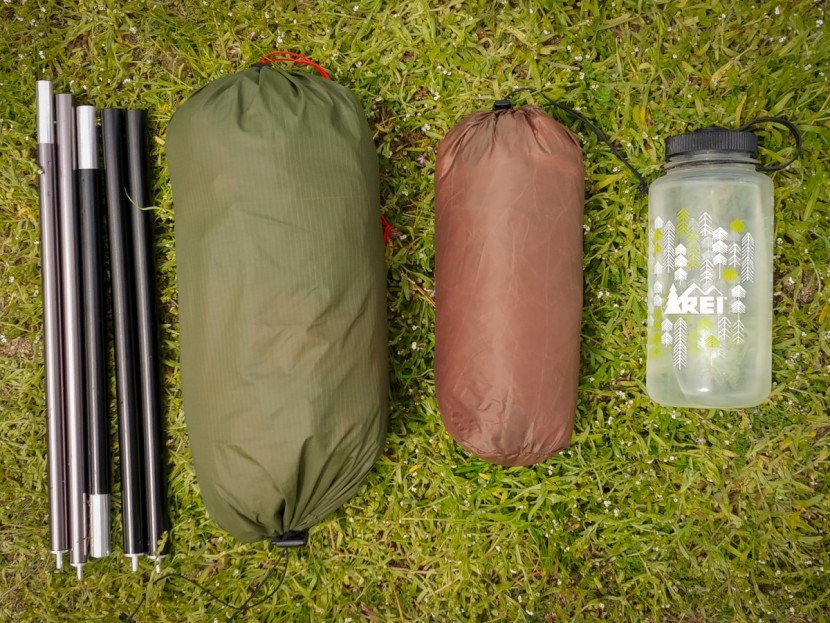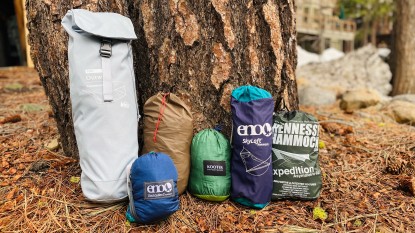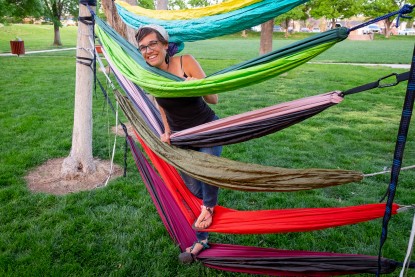Our Verdict
Compare to Similar Products
 This Product
Warbonnet Ridgerunner | |||||
|---|---|---|---|---|---|
| Awards | Best for Ultimate Comfort | Best Hammock for the Backcountry | Best for Extra Soft Comfort and Versatility | Best Hammock for Backyards | Best Bang for Your Buck |
| Price | $220 List | $175 List | $84.95 at REI Compare at 2 sellers | $130 List $129.95 at REI | $35 List $29.99 at Amazon |
Overall Score  |
|||||
| Star Rating | |||||
| Bottom Line | This model boasts a creative design that makes for a comfortable sleeping option for those who struggle to sleep in a traditional stretch hammock | This hammock gives you everything you want from a lightweight backcountry shelter | Buttery soft ripstop fabric combined with durable climbing grade carabiners and Dyneema cord prioritize comfort without sacrificing too much durability | This is an innovative hammock that offers the comfort for long naps and the durability to hold up to regular wear and tear | This affordable design is perfect for day use thanks to a rip-resistant parachute nylon construction that features triple interlocking stitches for increased durability |
| Rating Categories | Warbonnet Ridgerunner | Warbonnet Original... | Kammok Roo Double | ENO Skyloft | Wise Owl Outfitters... |
| Comfort (40%) | |||||
| Ease of Setup (20%) | |||||
| Durability and Protection (20%) | |||||
| Versatility (10%) | |||||
| Weight (10%) | |||||
| Specifications | Warbonnet Ridgerunner | Warbonnet Original... | Kammok Roo Double | ENO Skyloft | Wise Owl Outfitters... |
| Measured Weight - Hammock and Suspension | 35 oz (hammock, whoopie sling suspension, bug net) | 26 oz (hammock, bug net, webbing and buckle suspension) | 24 oz (hammock and straps) | 54 oz (hammock, Atlas Straps) | 30 oz (double hammock, straps) |
| Measured Weight - Shelter System | 52 oz (with Mini Fly tarp) | 42 oz (with Mini Fly tarp) | N/A | N/A | N/A |
| Maximum Capacity (Per Manufacturer) | Weight: 200-250 lbs (depending on options selected); Height: Up to 6' 6" |
Weight: 350-400 lbs (depending on options selected); Height: Up to 6' |
Weight: 500 lbs; Height: Not stated |
Weight: 250 lbs; Height: Not stated |
Weight: 500 lbs (double); Height: Not stated |
| Hammock Size (Per Manufacturer) | 10'1"L x 3'W | 10'L x 5'W | 10'L x 5'10"'W | 7'L x 3'W | 10'L x 6'6"'W |
| Dimensions in Carry Case | 1'3"L x 7"W | 10"L x 4"W | 4"L x 5" W | 1'7”L x 4.5”W | 9"L x 5"W |
| Suspension System Components (Included) | Whoopies, straps or buckle, webbing | Whoopies, straps or buckle, webbing | Dyneema Racer Slings and carabiners | Aluminum carabiners | Nylon cord and carabiners |
| Construction Materials | 1.1 oz/30D Nylon Double Layer | 40D or 70D Nylon (depending on options selected) | GravitasX 40D diamond ripstop nylon, 100% recycled, bluesign® approved with DWR waterproofing + crinkle treatment | NewWave nylon | 210 thread, rip-resistant nylon |
| Design Style | Bridge style hammock with optional bug net | End gathered, asymmetric hammock, single or double layer fabric, zipper along 1 side, integrated bug netting. | End-gathered with dyneema cord, DWR waterproofing and crinkle treatment | Durable ripstop nylon with aluminum spreader bars | End-gathered with 9 foot suspension straps |
| Sizes / Colors | 1 size, 12 colors, 2 fabric layering options | 1 size, 27 colors, 3 fabric layering options | 1 size, 7 colors | 1 size, 4 colors | 3 sizes, 18 colors |
| Hanging Straps Included? | No | No | No | No | Yes |
| Accessories (Included) | Stuff sack, continuous loops (for attaching suspension system) | Stuff sack, guylines, bug netting, storage shelf, continuous loops (for attaching suspension system) | Built-in stuff sack and carabiners | Stuff sack, aluminum wiregate carabiners | Built-in stuff sack, suspension straps, storage sack, 2 carabiners |
| Accessories (Compatible, Not Included) | Rainflies, bug net, carabiners, fish hooks, under quilts, top quilts, suspension systems | Rainflies, bug net, carabiners, fish hooks, under quilts, top quilts, suspension systems | Suspension straps, extenders, sun shade, bug net, portable stand, cup holder, gear sling, hammock sleeve, hammock organizer, hammock hanging kit | Suspension straps, rainfly, bug net, top quilts, under quilts, insulation pads, permanent anchors | None |
| Extra Accessories Tested (Not Included) | Mini Fly tarp, bug net, double layer fabric, whoopie slings, tree straps | Mini Fly tarp, webbing with buckles suspension, | Python 10 Suspension straps | Atlas Straps | None |
Our Analysis and Test Results
Since our test period, Warbonnet started using a new Dream-Tex fabric in its ultralight hammocks. The new material uses a ripstop weave with a diamond grid that is designed to be both strong and comfortable, with almost a cotton-like feeling.
Sleeping in a hammock can be a no-brainer for a back sleeper, but things can get uncomfortable for those who can't sleep in that position after a couple of hours. But with the Warbonnet Ridgerunner, you are essentially laying on a floating cot, so many sleeping positions are possible. Setup is quick and easy, an optional double-layer floor creates a sleeping pad sleeve, and an integrated bug net means you'll be safe from pesky insects. The Ridgerunner's use of spreader bars brilliantly marries the old-school patio hammock design with a modern, durable, lightweight nylon.
Comfort
The Warbonnet Ridgerunner easily achieves top scores for comfort, durability, and protection. Only some models with spreader bars allow you to lay easily and comfortably on either side, and, in the Ridgerunner, you can even lay on your stomach. It feels more like being in a floating tent or cot than a hammock. Interestingly, the only position that doesn't work quite as well is the fetal position because this hammock is particularly prone to tipping out – but we'll get to that. For those who don't mind carrying the extra weight of spreader bars, the Ridgerunner is a comfortable way to change up hammock camping and allow for some additional versatility.
As with all hammocks, some odd things can happen if the suspension isn't appropriately tensioned. Hanging the Ridgerunner too tightly results in a less stable hammock. Sitting up facing lengthwise can be tipsy and disorienting at night. You can improve this feeling by giving the hammock a little more slack and bending a leg (i.e., not sitting with your legs straight). But regardless of how you set it up, attempting to change clothes or shuffling around on your butt will likely result in some ground time.
The head and foot end of this model are built with loose fabric. Typically in a hammock, you will find that the fabric gets tighter and tighter as you get to the ends. But with the loose material in the Ridgerunner, you have room for a pillow or to rest your arms above your head. It also gives your sleeping bag's hood and foot box room to maintain its loft and warmth.
To sleep in a hammock without your feet feeling pinned is a glorious experience for anyone used to end-gathered hammock camping. Even in models with a foot box to give your feet more space, we still felt a little of the foot squeeze. There is absolutely none of that going on in the Ridgerunner. Warbonnet even sewed this model with tension in just the right places to give you slight neck support while letting your head lie flat.
Another common point of discomfort in end-gathered hammocks is the 'calf ridge' – that spot when you get your diagonal lay on and are nice and flat, yet the tension is pulling a ridge of fabric up behind your calf. It's something that most hammock campers get used to but never love. The Ridgerunner completely eliminates the 'calf ridge.' So this specialty design means no calf ridge, no hyperextended knees, no squeezing of the head, feet, or arms, and a comfortable side and even stomach positioning? Need we say more?
Ease of Set Up
The Ridgerunner is fairly easy to set up but requires a few extra steps. This hammock has a convenient double-sided stuff sack, allowing you to easily pitch camp while keeping everything out of the dirt. The large stuff sack offers plenty of space for the hammock and even the rainfly. Simple straps and buckles make tensioning a breeze, and you can upgrade to whoopie slings if you want an even lighter suspension system.
After the hammock is hanging, you have to insert the spreader bars. The bars are comprised of two poles, a longer one for the head and a shorter one for the foot. The head pole breaks down into three pieces, and the foot pole into two. They are color-coded to make it easy to figure out which pole sections go together. From there, you insert the pole tips into steel buckles on either side of the hammock. While this is all fairly straightforward, it is more to contend with and adds five separate pieces to your rig that you need to carry. While the setup is simple, it is more time-consuming than other models.
Warbonnet offers two suspension choices, and both are quick and easy to adjust and include 12 feet of material, giving you a wide range of set-up spans. The webbing system is the heavier of the two at 6.7 ounces and is almost dummy-proof in its simplicity — just reach around the tree and clip the carabiner back to the webbing.
The whoopie system is far less intuitive, but once you get used to it, it should be easy enough to hang and adjust. It weighs only 2.3 ounces, but we are disappointed in the Dynaweave tree strap's performance. After only one use, it crumpled widthwise, rendering it unable to protect the trees any more than a rope would. The rope also requires knot knowledge, so make sure to watch Warbonnet's How-To videos if you are unsure of the correct knots to tie.
One last step required to set up the Ridgerunner is to secure the shock cord attached to the integrated bug net. The bug net will sag into your face if you don't have the shock cord tensioned. This is as simple as attaching the cord at the head end to your anchor, slightly above wherever your suspension strap is. The cord on the foot end attaches directly to the base of the suspension or can be left unstrung without any issue. Alternatively, you can put up a separate ridgeline for the bug net, which could also support a tarp. Again, this is a simple procedure, but the bug net does require an extra step that other models do not.
The key to a restful hang in any hammock is finding the proper angle, and the Ridgerunner is no exception. Warbonnet recommends a 25-degree suspension angle when the hammock is weighted. They also recommend hanging the foot end about 12 inches higher than the head end. Although it looks like you will be lying upside down, this angle keeps your torso flat and your body from slowly scooching down during the night until your feet are jammed in the end. This setup is relatively simple to achieve with the easy-to-adjust straps and some practice.
Durability and Protection
The Ridgerunner is available in a single or double-layer bottom, and we tested both. The double-layer provides increased weight capacity and a sleeve for your sleeping pad so that it doesn't slip around and keep you up all night adjusting it – a feature we really appreciate.
This model has an optional integrated bug net, so you're protected from skeeters right out of the bag. The bug net stores away easily in a dedicated pocket if you don't need it. It doesn't come with a tarp, but Warbonnet offers a variety of tarps of varying sizes. These offerings automatically bumped up the Ridgerunner's score in this category.
We tried out the Mini Fly and are big fans of the size and protection. It offers more protection from wind and rain than any other rainfly in our test. In an effort to save weight, hammocks will often use smaller tarps that leave the user vulnerable to drafts and blowing rain. The Ridgerunner needs a wide tarp to cover the surface area created by its spreader bars. The A-frame style beaks on the Mini Fly in a way that does an excellent job of keeping out blowing rain, and the tarp is big enough to block gusts of wind from the sides. To prevent abrasion, you'll need to stake out the sides of your tarp far enough that the pole tips won't rub against the fabric when the hammock sways.
One small complaint is the quality of the plastic clips used to clip up the bug netting. These appear to be glove clips but with one end cut off. The cut leaves a rough edge that we are concerned will catch on the lightweight material, and unnecessarily opens up the potential to tear it. Given the quality of every other element on the hammock, we were surprised that Warbonnet didn't grind down this sharp edge. We looked into it on the hammock forums and found that others noticed the same thing, so it wasn't a one-off mistake.
While the Ridgerunner is constructed from relatively thin 1.1-ounce, 30-Denier nylon and requires attention and care the same way a good quality tent does, we didn't feel the need to baby it. When purchasing the hammock, you can select a heavier fabric, or even a double-layer option to increase durability. While it adds weight to your setup, it also increases weight capacity. Overall, this hammock is well constructed, sturdy, and, with proper care, should last years.
Versatility
The Warbonnet Ridgerunner offers great comfort thanks to the variety of sleeping positions it facilitates. It's delightful to lay on your back, super comfortable on both sides, and is even comfortable for stomach sleeping. Having this many position options in a camping hammock is uncommon, to say the least.
While the bug netting isn't completely removable, it has the ability to be zipped all the way down and stowed away in a special pocket at the foot of the hammock. This is a really nice feature, as it lets you clear your side views from netting completely. Unfortunately, because the net is attached, you cannot leave it at home when you want to save weight or space in your backpack.
The optional double layer of fabric is something that should be a mandatory design for all hammock shelters. Sleeping in a hammock with a sleeping pad usually results in a night of constant adjustment. But when the pad is securely stowed in its own pocket between the fabric layers, it stays in place and keeps you warm, allowing you to roll around all you want without losing it.
Each side of the Ridgerunner has large, saddlebag-like pockets. They hang on the outside of the hammock but are accessible from the inside when the bug net is zipped. The pockets are designed for users who want to keep more than just the essentials at hand. You can easily fit books, Nalgene bottles, and shoes inside. Best of all, they are fully functional with or without the netting. But it is important to note that if one pocket is weighted more heavily than the other, the hammock can actually flip over when you get out.
The versatility of the Ridgerunner is limited by its relatively low weight limits. At 200 pounds for the single-layer and 250 pounds for the double-layer model, this hammock is not designed for larger users. The hammock is long and listed as fitting folks up to 6' 4" tall. While our 6' 2" testers felt like they had lots of space, broad-shouldered testers felt a little confined in terms of width. While this is a versatile hammock for camping (for folks who fall within the weight capacity), the design doesn't accommodate sitting sideways or upright the same way that open, end-gathered models do, which makes it less enjoyable for just lounging.
Weight
This is not a lightweight hammock, but it is still lighter than many one-person tents. The Ridgerunner weighs 35 ounces with its bug net and suspension, making it one of the heavier hammocks in the test group. Its full shelter weight with the Mini-Fly, whoopie sling, Dynaweave strap suspension, bug net, and double-layer fabric comes to 52 ounces. The extra weight comes from the 12-ounce spreader bars; unfortunately, these are not optional.
Hammock weight and comfort are almost always inversely proportional, and this case is no different. Most other full shelter system hammocks we tested weigh at least 10 ounces less than the Ridgerunner's complete system, but the comfort really doesn't compare. You can drop a few ounces by purchasing the single-layer Ridgerunner, but if you're already committing to the weight of spreader bars, you might as well have the luxury of a sleeve for your sleeping pad.
Should You Buy the Warbonnet Ridgerunner?
Purchasing the Ridgerunner is an investment, particularly when you begin to tack on the price of a suspension system and any specialty add-ons. However, if you're serious about hammock camping and sleeping comfort is something that doesn't come easily, the spendy price tag is worth every penny. If side sleeping is critical for a good night's sleep and a happy back, you'll be happy you dropped the dough on the Ridgerunner.
The Fully Customizable Ridgerunner
With so many options available for modification from Warbonnet, we suggest watching their videos before purchasing a hammock. They do a good job of breaking down their features and benefits to help you make an informed decision. Below are a few we found especially helpful as we got to know the Ridgerunner.
Ridgerunner Setup
Webbing & Buckle Suspension
Whoopie Suspension
What Other Hammocks Should You Consider?
The Warbonnet Ridgerunner is a thoughtfully constructed hammock with an integrated bug net, large side gear pockets, and spreader bars that create a flat sleeping area conducive to side and stomach sleeping. If protection and shelter are important to you, but you want something a bit lighter weight, you should check out the Kammok Mantis. At a slightly steeper price, you get all the bells and whistles of lightweight comfort and protection, though the suspension system can be a bit frustrating. The Grand Trunk Skeeter Beeter Pro requires a bigger investment of time and extra accessories for set up and comes with fewer bells and whistles to make it a backpacker's top choice, but it's a worthy entry-level contender for backcountry overnights at a much more affordable price than the other two.


